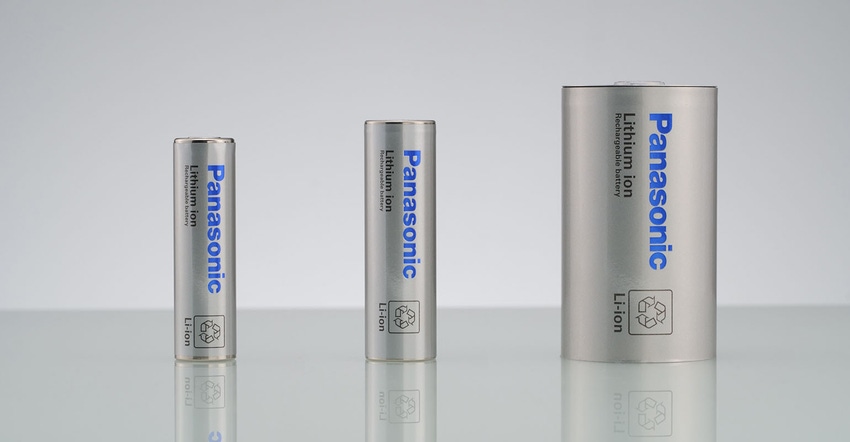Panasonic, Sila Partner to Develop Higher-Performance Batteries
Panasonic will work with battery materials company Sila to leverage a nano-composite silicone anode for improved, sustainable EV batteries.

Panasonic Energy, a Panasonic Group subsidiary, has partnered with Sila, a battery materials company, in a groundbreaking collaboration to redefine electric vehicles (EVs) and battery technology. This collaboration centers around Sila's nano-composite silicon anode, Titan Silicon. According to Sila, Titan Silicon boasts a significantly lower CO2 footprint per kWh than graphite in its production process. Additionally, being manufactured in the US, it positions automakers to fulfill criteria for tax credits under the Inflation Reduction Act.
Addressing silicon challenges
Silicon significantly boosts battery efficiency, holding ten times more energy than the commonly used graphite in lithium-ion batteries. But there's a problem with silicon –when it charges, it expands, causing degradation in battery performance. However, according to Sila, Titan Silicon suppresses expansion during charging, which has been a longstanding material challenge. Sila claims that with its technology, a cell with total graphite replacement using Titan Silicon will swell by only 6%, similar to graphite cells at the end of life.
Sila will manufacture its anode materials at the Moses Lake, WA facility. Courtesy of Sila.
Sila and Panasonic collaboration
This collaboration aims to leverage Panasonic's high energy density battery, foreseeing its potential to provide better EV performance. “By integrating Sila's groundbreaking battery material with our advanced cell manufacturing capabilities, we believe that we can address concerns such as range anxiety and charging time and contribute to accelerating the adoption of EVs,” stated Shoichiro Watanabe, Executive Vice President of Panasonic Energy.
Sila will manufacture its anode materials at the Moses Lake, WA facility, optimizing them for integration into Panasonic's next-generation lithium-ion batteries. Panasonic believes that to achieve a 25% increase in battery energy density, from the current level of 800Wh/L to 1,000Wh/L by 2031, it is essential to incorporate next-generation silicon materials in its battery development. Therefore, by partnering with Sila, Panasonic Energy could take a significant step toward achieving its 1000 Wh/L goal.
The collaboration between Panasonic Energy and Sila is attractive due to its potential to redefine the landscape of EVs, enhance battery performance, and contribute significantly to the continuous efforts to make EVs more accessible and environmentally friendly. This partnership not only signifies a strategic move in advancing automotive battery technology but also addresses critical factors such as range anxiety, charging times, and environmental sustainability, aligning with the broader goals of the evolving EV industry.
About the Author(s)
You May Also Like





